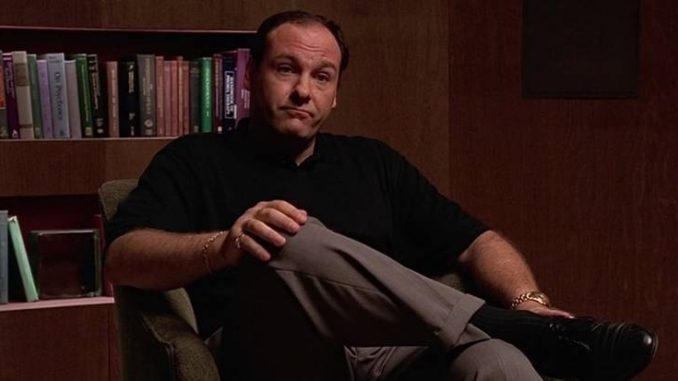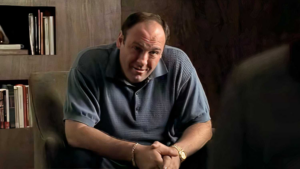
Introduction
James Gandolfini was more than just a talented actor—he was a force of nature. But it’s fair to say that after his iconic portrayal of Tony Soprano in The Sopranos, his life and career were never the same. Playing the complicated mob boss Tony Soprano not only revolutionized television but also cemented Gandolfini’s place in pop culture history. However, this success came at a cost. The impact of his role—and the fame that followed—left a lasting imprint on both his professional and personal life.
In this article, we’ll explore how The Sopranos changed James Gandolfini, both on and off-screen. We’ll take a look at the challenges, transformations, and enduring legacies that shaped his life after the show, offering a complete picture of the actor’s journey post-Sopranos.
James Gandolfini’s Life Post-The Sopranos Was a Rollercoaster of Fame and Struggles
The overwhelming success of The Sopranos set the bar incredibly high for James Gandolfini. After portraying Tony Soprano, a role that defined a generation of television viewers, he was thrust into the spotlight in a way that no one could have anticipated. But with great fame came great pressure—and a constant struggle to separate his identity from that of Tony Soprano.

The Weight of Playing Tony Soprano
Gandolfini’s portrayal of Tony Soprano was a revelation. He brought depth, vulnerability, and a haunting complexity to the character of a mob boss who was simultaneously brutal and fragile. But such a profound role took a toll on him, both mentally and emotionally. As much as fans adored his portrayal of Tony, Gandolfini struggled to escape the shadow of this iconic character.
H3: The Emotional Toll of Playing Tony Soprano
Tony Soprano was a deeply conflicted man, grappling with personal demons, family issues, and the moral compromises of mob life. Gandolfini connected with Tony’s vulnerability, but this connection was also draining. Playing such a tortured character for years led Gandolfini to experience periods of intense introspection and self-doubt.
H3: Struggling with Public Perception
While Gandolfini was lauded for his performance, he found it difficult to distance himself from Tony Soprano. Fans would constantly approach him, calling him by the character’s name, often forgetting the actor behind the role. Gandolfini once said that he felt trapped by the character, unable to move beyond the boundaries that The Sopranos had set for him.
The Post-Sopranos Career Shift
After the end of The Sopranos, Gandolfini faced the challenging task of reinventing himself as an actor. The show had propelled him into the Hollywood limelight, but it had also pigeonholed him as a larger-than-life mob boss. Now, he was determined to prove that he was more than just Tony Soprano.
H3: Moving Away from Mob Roles
Although Gandolfini would always be associated with Tony Soprano, he worked hard to diversify his career. In the years following The Sopranos, Gandolfini appeared in a wide variety of roles, from comedy to drama, to prove his range as an actor. His performances in films like The Mexican and Enough Said showcased his versatility and natural charisma, which made it clear that he had much more to offer than just mobster roles.
H3: Finding Success in Character Roles
Gandolfini’s portrayal of more complex, non-Tony characters gained critical acclaim. Enough Said, for instance, was a heartwarming romantic comedy where he played Albert, a divorced man who is looking for love. It was a stark contrast to Tony Soprano, and critics were impressed with Gandolfini’s ability to convey sensitivity and vulnerability.
The Struggles Behind the Scenes
Despite his professional successes, Gandolfini’s personal life was tumultuous. His fame often came with a heavy burden, and he struggled with relationships, health issues, and inner demons.
H3: The Strain of Constant Attention
One of the most significant challenges Gandolfini faced after The Sopranos was the pressure of public attention. His personal life was often scrutinized by the media, and he was relentlessly pursued by paparazzi. This constant invasion of privacy took a toll on his mental well-being, making him yearn for a more private life.
H3: Battles with Mental Health
Gandolfini was open about his struggles with mental health, including bouts of depression and anxiety. After The Sopranos, he grappled with feelings of isolation and a sense of loss. He once admitted that he felt disconnected from the world around him, unable to truly embrace his newfound fame.
A Life Cut Short: The Untimely Death of James Gandolfini
James Gandolfini’s career seemed to be entering a new phase when tragedy struck. In 2013, Gandolfini tragically passed away at the age of 51, while vacationing in Rome. His sudden death shocked the world, leaving behind an unmatched legacy in television and film.
H3: The Shock and Grief of the Entertainment Industry
The news of Gandolfini’s death sent shockwaves through the entertainment world. Tributes poured in from fans, co-stars, and industry leaders alike, all remembering him not only as an actor but as a kind, generous, and humble man. His untimely death marked the end of a chapter in the history of television, as The Sopranos remains one of the most influential TV shows ever made.
The Legacy of James Gandolfini
Despite his personal struggles and the challenges he faced after The Sopranos, James Gandolfini’s legacy as one of the greatest actors of his generation remains intact. His performance as Tony Soprano reshaped the way we view antiheroes on television, and his ability to bring nuance and depth to complex characters will be remembered for years to come.
H3: Tony Soprano: A Character That Will Live Forever
Even though Gandolfini is no longer with us, his portrayal of Tony Soprano remains one of the most iconic in television history. Tony’s complex, multi-dimensional character continues to inspire discussions about what makes a truly great antihero. Gandolfini’s ability to humanize Tony while still portraying him as a ruthless mob boss is a testament to his extraordinary talent.
H3: A Lasting Impact on Television
James Gandolfini’s contribution to television cannot be overstated. The Sopranos set a new standard for storytelling, character development, and performances. Without his portrayal of Tony Soprano, the modern television landscape—filled with morally ambiguous protagonists—may not have looked the same.
Conclusion: The Aftermath of The Sopranos on James Gandolfini
James Gandolfini’s time on The Sopranos changed his life in ways he could never have predicted. The weight of portraying Tony Soprano, the toll of fame, and his personal struggles after the show all left their mark. Yet, despite the challenges he faced, Gandolfini’s legacy remains a testament to his immense talent and the depth of his artistry.
In the end, James Gandolfini was never the same after The Sopranos, and neither was television. His impact will continue to resonate for generations to come.
FAQs
1. What was James Gandolfini’s life like after The Sopranos?
After The Sopranos, Gandolfini struggled to escape the shadow of Tony Soprano while dealing with the pressures of fame and personal challenges. Despite this, he found success in various roles in film and television.
2. How did Gandolfini cope with fame after The Sopranos?
Gandolfini found fame overwhelming at times. He struggled with the public’s perception of him as Tony Soprano and faced challenges with mental health and personal relationships.
3. What roles did James Gandolfini take on after The Sopranos?
Gandolfini sought to diversify his career, taking on roles in films like The Mexican, Zero Dark Thirty, and the romantic comedy Enough Said, where he showcased a broader range as an actor.
4. What is James Gandolfini’s most memorable role?
Without a doubt, Gandolfini’s portrayal of Tony Soprano is his most memorable and iconic role, forever cementing his place in television history.
5. How did James Gandolfini’s death impact the entertainment industry?
Gandolfini’s death in 2013 shocked the entertainment world, leaving a massive void in television and film. His passing was deeply mourned by fans and colleagues alike.